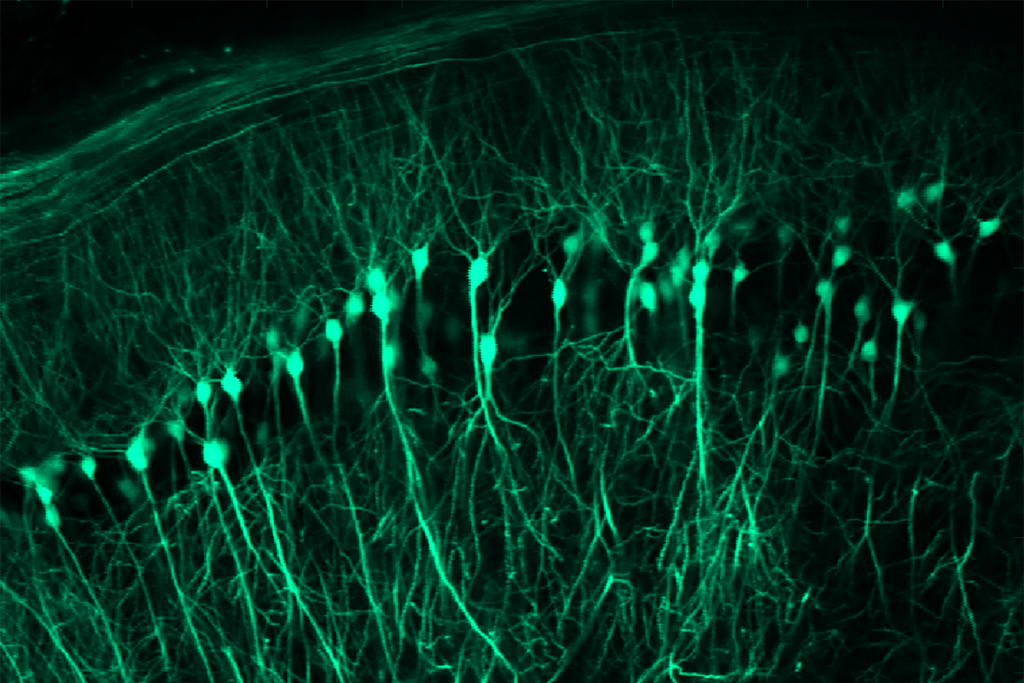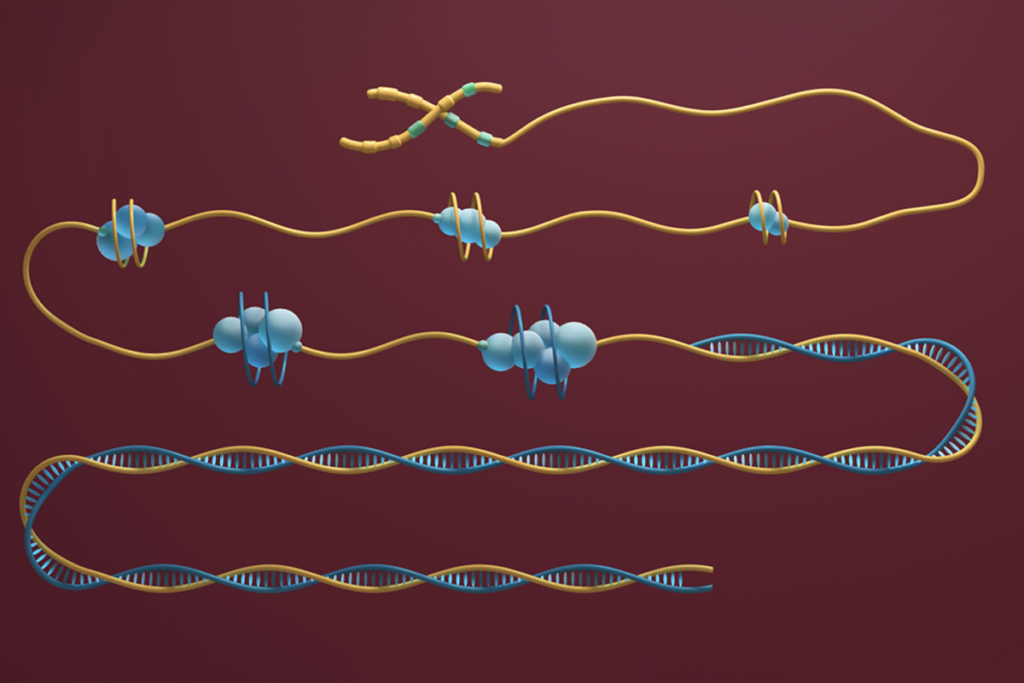Neocortex
Recent articles
The missing half of the neurodynamical systems theory
Bifurcations—an underexplored concept in neuroscience—can help explain how small differences in neural circuits give rise to entirely novel functions.

The missing half of the neurodynamical systems theory
Bifurcations—an underexplored concept in neuroscience—can help explain how small differences in neural circuits give rise to entirely novel functions.
Spatial learning circuitry fluctuates in step with estrous cycle in mice
Cyclic shifts in estradiol levels coincide with changes in dendritic spine density and the activity of place cells in the CA1 region of the hippocampus, a new study shows.

Spatial learning circuitry fluctuates in step with estrous cycle in mice
Cyclic shifts in estradiol levels coincide with changes in dendritic spine density and the activity of place cells in the CA1 region of the hippocampus, a new study shows.
Rajesh Rao reflects on predictive brains, neural interfaces and the future of human intelligence
Twenty-five years ago, Rajesh Rao proposed a seminal theory of how brains could implement predictive coding for perception. His modern version zeroes in on actions.
Rajesh Rao reflects on predictive brains, neural interfaces and the future of human intelligence
Twenty-five years ago, Rajesh Rao proposed a seminal theory of how brains could implement predictive coding for perception. His modern version zeroes in on actions.
Molecular signature may lead to blood test for autism
Researchers have identified a distinctive pattern of gene expression in the white blood cells of young autistic boys.

Molecular signature may lead to blood test for autism
Researchers have identified a distinctive pattern of gene expression in the white blood cells of young autistic boys.
Fathering geeks; GWAS weaknesses; Prozac protection and more
Paternal age drives ‘geek index’ scores, GWAS may have a big weakness, serotonin boosts mouse social behaviors, and what is science Tinder?
Fathering geeks; GWAS weaknesses; Prozac protection and more
Paternal age drives ‘geek index’ scores, GWAS may have a big weakness, serotonin boosts mouse social behaviors, and what is science Tinder?
Sequencing approach bares large variety of brain cell types
Analyzing gene expression in a vision center of the mouse brain has revealed 49 different classes of cells.

Sequencing approach bares large variety of brain cell types
Analyzing gene expression in a vision center of the mouse brain has revealed 49 different classes of cells.
Mathematical model of autism bridges brain, behavior
A mathematical model of the brain’s circuits shows how neurons stuck in overdrive could produce symptoms of autism. The model may reveal how autism-linked behaviors arise from underlying biology.

Mathematical model of autism bridges brain, behavior
A mathematical model of the brain’s circuits shows how neurons stuck in overdrive could produce symptoms of autism. The model may reveal how autism-linked behaviors arise from underlying biology.
Atlas charts gene activity in developing monkey brains
Researchers have for the first time mapped gene expression in the rhesus macaque brain from birth through adulthood. The atlas illuminates the expression patterns of genes likely to be important in autism.

Atlas charts gene activity in developing monkey brains
Researchers have for the first time mapped gene expression in the rhesus macaque brain from birth through adulthood. The atlas illuminates the expression patterns of genes likely to be important in autism.
Spotted: Social cells; brain bulge
A cluster of neurons helps monkeys cooperate, and a human gene makes a mouse brain look like a person's.

Spotted: Social cells; brain bulge
A cluster of neurons helps monkeys cooperate, and a human gene makes a mouse brain look like a person's.
Autism gene guides early neuron development
The little-studied autism gene ANKRD11 helps to package DNA in the nucleus and plays a critical role in the early growth and positioning of neurons.

Autism gene guides early neuron development
The little-studied autism gene ANKRD11 helps to package DNA in the nucleus and plays a critical role in the early growth and positioning of neurons.
Explore more from The Transmitter
Frameshift: Raphe Bernier followed his heart out of academia, then made his way back again
After a clinical research career, an interlude at Apple and four months in early retirement, Raphe Bernier found joy in teaching.

Frameshift: Raphe Bernier followed his heart out of academia, then made his way back again
After a clinical research career, an interlude at Apple and four months in early retirement, Raphe Bernier found joy in teaching.
Organoid study reveals shared brain pathways across autism-linked variants
The genetic variants initially affect brain development in unique ways, but over time they converge on common molecular pathways.

Organoid study reveals shared brain pathways across autism-linked variants
The genetic variants initially affect brain development in unique ways, but over time they converge on common molecular pathways.
Single gene sways caregiving circuits, behavior in male mice
Brain levels of the agouti gene determine whether African striped mice are doting fathers—or infanticidal ones.

Single gene sways caregiving circuits, behavior in male mice
Brain levels of the agouti gene determine whether African striped mice are doting fathers—or infanticidal ones.